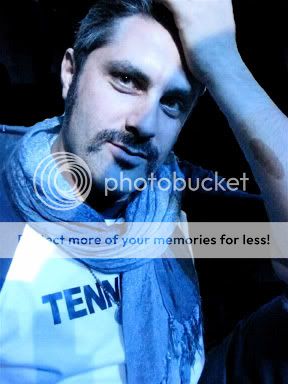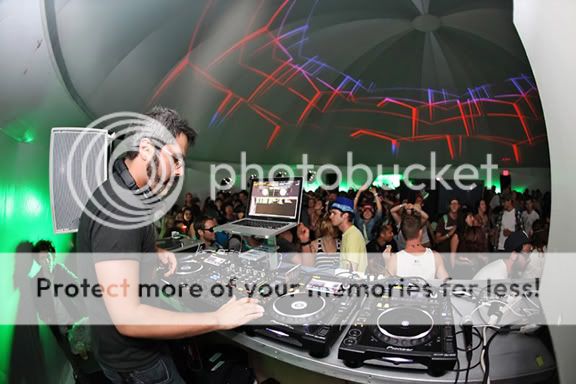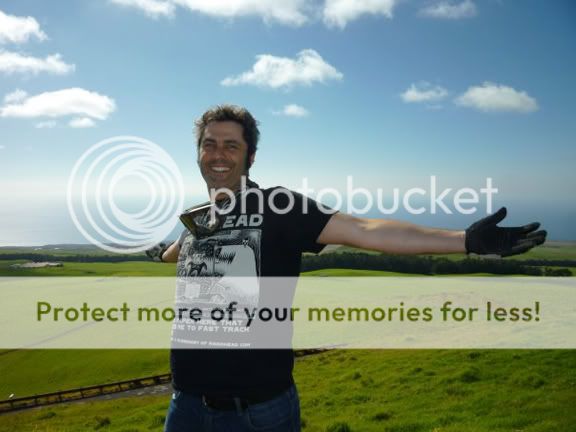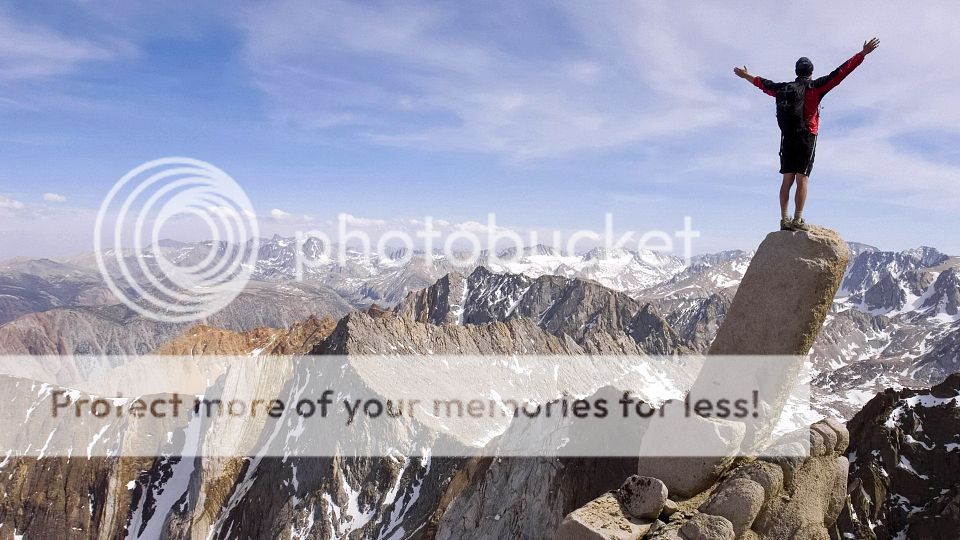An inside look at people in the entertainment industry. From doormen, dj’s and promoters to venue owners, managers, and booking agents. In their own words find out how they got where they are, and where they are going.
ROBBIE KOWAL of SUNSETSF (now HUSH Concerts)
Interview conducted in 2015

You’re originally from Boston and lived in New Orleans for 5 years. How did you end up in San Francisco?
Like most of the people who “end up” here, I had been bombarded with San Francisco mythology my whole life. Whether it’s the myth of music in the streets, free expression, economic opportunity, people associate San Francisco with something positive. And it works for anyone. If you are into hip-hop, there’s Digital Underground, Too Short, Quannum and Anticon. Metal? Metallica. Latin? Santana. Rock? The Dead. Funk? Sly. Plus Silicon Valley if you are an entrepreneur or the Castro and Pride if you are gay. Though the beauty of the Bay gets the attention, it’s these myths actually draw people here more than they even realize. But the myths are what’s important because they draw ARTISTS, FREE THINKERS and ADVENTURERS. They end up instigating yet another generation of myths and perpetuate this positive cycle.
In my case the myths that drew me here were those of the 50’s and 60’s. I was a writer. I was writing every day for at least 4 years, stringing for whoever would pay me... writing poetry, performing at Slams. So it was the myth of the Beats, and to some degree, yes Santana and the Dead etc that drew me here. I got here in 1997 at the height of the Dot.Boom and was blown away at how different the reality here was from the myth. For the first 5 years here I made my living through writing, sportswriting, music, PR work...which led me to music promotion, and eventually out of writing altogether.
How did you get into the business of producing concerts?
I was DJing a Thursdays rare groove night at Nickie’s in the Haight called WhatDaFunk. We went really deep and people didn’t know half the music. So I started writing a little “WhatDaFunk Newsletter” to explain the significance of the artists. Eventually this became an email and eventually I had a big following. The Nickie’s night and the email led me to being able to bring funk fans to other promoters shows, including those of a guy named John Miles. We started working together on Mardi Gras 1997 and haven’t looked back. 1000+ concerts and parties later, we are still in business together as SunsetSF.
I know there’s no standard, but what would you say the percentage should a promoter make from a show? Obviously if the show does poorly it’s usually the promoter who takes the hit. But when a show does well, how much does a promoter make?
Well it depends in how much work you actually do, the nature of the show, the artists involved. Actually, there IS a Standard. It’s typically 15% after expenses to the promoter. This is the standard for the big clubs, and big artists with big agents. In general, there is a feeling that these artists are going to sell-out all the shows so 15% is enough for the promoter. The reality is that this is nowhere near enough for most promoters or venues to cover the money they lose on their losing shows, not to mention, phone bills, rent, cars and all the other stuff it takes to live on. So most big venues and promoters pad their expenses to compensate. So the “industry standard” is a complete lie that benefits no one.
Which is why I choose to avoid it and start from a position of reality with my bands, agents, and colleagues. Every show begins with an offer and a negotiation and a deal. Basically, I start from “what do you guys need to make?” It’s an empathetic question that demonstrates that I care about the artist’s reality in terms of their tour, rent, gear etc. I try to meet them by risking what they need to make (to get the show done) then reward incentives if they do well enough for both of us to profit. The more risk I take on, typically, the more reward I feel I am entitled to. This is the basis of a good deal for both parties and enables me to take longer odds risk on emerging artists, helping build new careers.
Monetarily what has been your best show, and worst show?
Our best shows have typically been the big art-centric festival-type where we own the bar. Ghost Ship is a great one for lower/risk vs higher reward. Our worst two shows were two that will shock anyone. Aretha Franklin and James Brown both cost us over 6 figures in losses and almost bankrupted us. But you could never have told me that beforehand and I’m very proud to say that we paid them both in full despite said losses. Money can come back. Your reputation is priceless.
Wow, I’m impressed that you paid them. You always hear these stories about promoters either taking off with 100% of the door, or when they lose money the artists can find them to get their guarantee. If you don’t mind me asking, why did those shows lose so much and what did you learn to do or not do from those shows? Was it just poor ticket sales?
You can’t go into a show without knowing you have the wherewithall to survive the worst-case scenario. So many people have money and think they can do this, so they put on one show, and either don’t pay an artist, ruining their reputation forever, or pay them and lose their fortune. But what other industry do people actually think they can walk in on day 1 and play with the big boys? It would be ridiculous for me to think I could take a bunch of money and go into the oil industry, the tech industry, or be a cop or something. I’d fail at first too, probably horribly. Any profession takes years of hard work to master, but since music is “just music” everyone thinks they can try it. And the agents, managers etc are all too willing to take their novice money. The industry is littered with the corpses of novice, fly-by-night promoters.
The reality is that it’s ALWAYS poor ticket sales. And typically, 80% of financial success in a show is determined on three things, WHO you book, WHEN, and WHERE? All of the marketing in the world only accounts for 20% of the gate. Since the promoter is counted on to get the artist (and gets paid out of) that extra 20%, marketing matters, but nothing like WHO, WHEN, and WHERE. This sounds basic but it takes years to master the nuance of this equation. And even when you get everything right... It. Can. Rain. Which is akin to the green numbers on the roulette table.
In the case of JB, it was “it can fog”. We were stuck with a potentially foggy day by date restrictions at Fort Mason... knew the date was a weather risk and took the risk because it was James Brown. It turned out foggy and we took it on the chin. However, paying James Brown for his last performance in SF is a great honor I will take to my grave. Amazingly, the sun actually came out when he went on. It was a musical miracle... a financial disaster... but a musical miracle and testament to my personal favorite American hero.
For the Aretha show, it was just a fluke thing also. The show was in DC and about a month before the show, sales were tracking well, but then the 2008 financial crisis hit. Every day on the news, the talk was of the end of the world, runs on banks etc. No one was going to pony big money to see a diva if they weren’t sure if the ATM would work that week. Sales died that day and so did we. It was a perfect storm and demonstrates exactly why promoting is such treacherous business; why you read those stories of the “promoter ran away and joined the Marines and was subsequently killed in Iraq”. That scenario actually happened; you can look it up.
Look, people only notice when something goes wrong. Our job as a promoter is the 50 little things that ensure success. If any of them, from the pickup at the airport, to the sound tech having a head cold, can flat RUIN a show. On the recent Morris Day & the Time show, we almost had to cancel on day-of-show because Jellybean Johnson, the drummer, got stuck in a snowstorm in Minnesota. Promoting concerts is NOT a profession for the weak of spirit, nor is it a job for those who want to get rich. You have to truly LOVE music to be willing to have the absolute hardest, riskiest job in it. This is why most of the promoters now in Northern California are either big companies with deep pockets or pot growers with money to literally burn. SunsetSF are neither.
What has been your favorite event that you produced?
I’m most proud of our work on Sea of Dreams 2009-present and Ghost Ship 2010-present. It really brought into sharp focus all of what we had learned since 1997. In how to create a smoothly running, efficient, and financially responsible operation without any of corporate culture or fat. They demonstrate our skill at something that most production companies lack, which is to nurture communities of artists without destroying the nature of their culture. AnonEvents (Sea of Dreams) and Ghost Ship (Space Cowboys) were fantastic, vibrant, and rich community arts events with a great degree of production experience before we started working with them. The process of helping them refine their vision to make greater profit without threatening the precious nature of their culture has been a richly rewarding one.
Over the years marketing & promotions has changed a lot. Especially with Facebook, Twitter and online presence in general. What do you feel are the best ways to promote a show?
It’s way harder today, but on the other hand, I remember TRIBE, and Myspace as well. Not to mention the days when we beat each-other up for write ups in the Guardian or the Weekly. Outside networks and helpers come and go. You need to concentrate on your OWN community and make your own website something worth visiting and your email something worth opening. We have 43,000 registered users, of which we communicate with 50% of them on a weekly basis.
I always thought posting on going.com was a great way to get the word out on an event. I was sad to see them go. Are they any other platforms like Tumblr and YouTube that you have found useful?
I go to SXSW Interactive every year, attend all of the marketing seminars to answer exactly that question. Things change so much, you really have to pay attention and listen to the geeks. The answer is it’s ALL useful. You have to be everywhere and focus on the right medium for the right message. EVERY network is now a social network.
Going.com was a great example of using social media as a short-term cash grab and demonstrates the pitfalls of a promoter leveraging any one avenue too heavily. They spent some start-up money adding users, then sold the users to AOL for profit. The time and energy anyone put into Going was just a big advertisement.
How far out do you start your promotions campaign for an event?
Typically, I like to book and announce a show 8 weeks out and start promo then.
Concerts have taken a hit the last few years. Part of the problem was overpricing. How do you determine the ticket price for a Sunset Promotions concert?
It’s determined in that first negotiation when I ask the act “what do you need to make it work?” This determines a huge part of the equation. I plug that in with expenses and figure out what the price needs to be to break even at between 50-75% of the venue capacity. It’s all math. Our shows are very rarely over $20. The overpricing is a function of the “Gouge while you can” mentality of some of the richer industry types. Also, Ticketmasters’ control of the big venues, and tours leads to massive unnecessary surcharges on many of the big shows. We don’t do that either.

You also dj. What type of sets do you spin and what equipment do you use when dj’ing?
I was a DJ first and it’s still my favorite thing to do. I started with rare groove and funk and rock and still do it, although under a different context. Now I take my favorite rare groove, funk and rock and layer it over club beats, breaks, house etc… I call it “Electric Nostalgia”. I have about 20 tracks in the hopper ready to put out that are just waiting for a free moment. But I keep getting asked to produce concerts and do interviews and stuff….
What are your favorite venues in San Francisco and what makes them special? Not necessarily ones that’s you have done events at but just in general.
We are so fortunate here with so many outstanding facilities with first-rate staff and management. You can really take your pick of amazing rooms like the Fillmore, Great American, Slims, DNA, 1015, Ruby Skye, Cafe Du Nord, Elbo Room and the Independent. We also just welcomed two spectacular new clubs recently in Public Works and Monarch.
My personal favorites are actually the ones I work with, otherwise I wouldn’t work with them. I think Mighty has to be my favorite. There’s something so incongruous, funky and unusually about the space, combined with the juicy sound system with the actual stacks from Paradise Garage. Best club-owner in the business too. I have learned so much from watching how Sean Manchester operates the club, and his other businesses.
I also think Mezzanine is special because it has two sound-systems for a live or dj show and both are the tits. The production staff is outstanding there too. The artist/backstage areas at Mezz are unparalleled anywhere I’ve been. But you could say great things about any of the above. We are truly so lucky here in the Bay Area.
Finally, I have a soft space in my heart for the EndUp. It really typifies the weirdness and beauty of SF dance culture but also has a backyard, fireplace and a near perfect dance floor sound system. It gets overlooked but the EndUp would be the top club in most cities.
I remember in the early 90s going to The EndUp for the first time. I don’t know what event they were having but my date and I walked in and there were people on the bar wrapped in clear plastic. It was so San Francisco. Other than concert venues do you have any favorite bars that you would recommend to someone visiting San Francisco?
Bars? I rarely spend time in bars except when watching football. But if I HAD to, I’d recommend Chambers (formerly Bambuddha/Phoenix Hotel), also owned by the Mighty peeps. The entire decor is vinyl records. 30,000 of them. Just a uniquely perfect atmosphere for a date, dinner. Plus if the date goes well, you can “get a room” right there. I also like Pete Glickshtern’s new spot, Jones. The outdoor patio is unreal.

What’s in the near future for Sunset Promotions and what’s next for Robbie Kowal?
For SunsetSF we will continue on Sea of Dreams and Ghost Ship and the 40 or so other local club shows we do. We’ll also be continuing to develop the Silent Frisco brand nationally, working with festivals all over the country to bring Silent Disco shows. For me personally, there really is no more separation between my life and my business. I have a business that I love and am so proud of and I work with and for the people I love, so these goals are my goals. The only personal goal I have is to go diving in the Pacific Ocean this year, hopefully in Palau or Fiji.
________________________________________________

About the interviewer
Dave Paul began his music career in 1984, starting as a mobile dj and evolving into a prominent college radio dj, club dj, and remixer in San Francisco. In 1991 he launched the now legendary publication The Bomb Hip-Hop Magazine and in 1996 Paul transformed the magazine into a record label. The company was named "one of the fifteen independent labels that matter" according to Rolling Stone and the labels Return of the DJ series was ranked by Spin Magazine as #25 in their 90 Greatest Albums of the 90's list. Dave Paul has appeared on the front cover of Billboard magazine, and is featured in the motion picture Scratch. Mr. Paul has dj'ed throughout the US, toured Europe, released over 100 projects on his record label and currently produces themed dj parties including the 13 year running Prince and Michael Experience. If you feel you are qualified and would like to be interviewed you can contact Dave Paul at - bombhiphop@gmail.com
Already interviewed:
Robbie Kowal of SunsetSF (San Francisco) - INTERVIEW
Dave Paul of Bomb Hip-Hop (San Francisco) - INTERVIEW
Michael Krouse of Madrone Art Bar (San Francisco) - INTERVIEW
Mike Maietta of CEG Presents (New York) - INTERVIEW
Scheduled to be interviewed:
to be announced